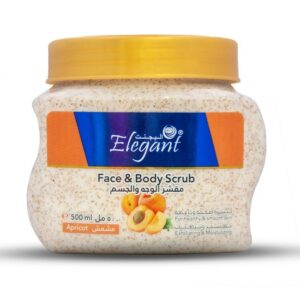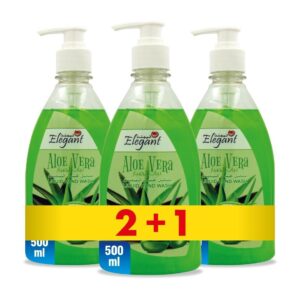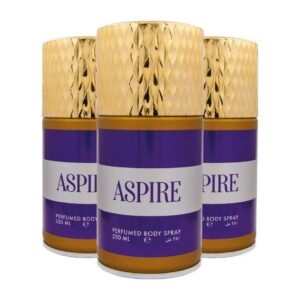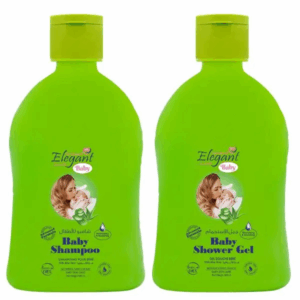Choosing the right fabric softener for different types of fabrics isn’t just about making laundry smell good. It’s about protecting your clothes, maintaining their texture, and extending their lifespan. But with so many options, liquid softeners, dryer sheets, organic fabric softener alternatives, and even combined conditioners, it can be hard to know where to start.
This guide will help you understand what fabric softener is, how it works, and how to choose the best one for your clothes, towels, and linens.
What Is Fabric Softener?
Let’s start with the basics: what is fabric softener, and why do people use it?
Fabric softener is a laundry product added during the rinse cycle of a wash. Its main job is to soften fabrics, reduce static cling, and leave clothes feeling smoother and smelling fresh. It works by coating the fibers with a thin layer of chemicals or natural oils that help reduce friction between threads.
This makes fabrics feel less rough, prevents them from clumping together, and adds a light scent that lingers after drying.
Fabric Conditioner vs Fabric Softener: Are They the Same?
Many people use the terms fabric conditioner vs softener interchangeably, and for most purposes, they are the same. Both are used to soften clothes and add fragrance. However, in some cases, fabric conditioners may contain extra ingredients to nourish and protect fabric fibers, especially for delicate items.
Think of it this way: all fabric conditioners are softeners, but not all softeners are full conditioners. If you’re washing something delicate like silk or cashmere, a gentle conditioner may be the better choice. In addition, it makes sure your kids don’t have skin issues (focus on detergents in addition to building a skincare routine for kids).
How to Use Fabric Softener Correctly
Using fabric softener is simple, but getting the best results means applying it the right way. If you’ve ever wondered how to use fabric softener, the answer depends on your machine and fabric type.
Most washing machines have a designated compartment for fabric softener. It’s important to pour the product there rather than directly onto the clothes, which can cause staining or uneven coverage. The machine then releases the softener during the final rinse cycle.
If you’re using a manual wash method, add softener to the final rinse water and make sure it’s diluted before adding clothes. Never apply it directly to dry fabric.
Choosing Fabric Softener for Cotton and Everyday Clothing
Cotton is the most common fabric in everyday clothing. It’s breathable, durable, and easy to care for. A standard liquid fabric softener works well with cotton, especially for items like T-shirts, pajamas, and undergarments.
A product like Comfort fabric softener is ideal here, it’s easy to find, affordable, and provides a lasting scent. It leaves clothes feeling smooth while preventing static and wrinkles.
Just avoid using too much softener, as this can cause build-up over time and reduce the absorbency of some items like socks or underclothes.
The Right Fabric Softener for Towels and Linens
Towels and bed linens can become stiff or scratchy over time, especially after multiple washes. While a good fabric softener can restore softness, it’s important to use it sparingly. Too much softener can reduce the absorbency of towels by coating the fibers too heavily.
For these items, choose a softener designed for heavier fabrics or a fabric conditioner that balances softness with fiber protection. You can also alternate between softener and a vinegar rinse every few washes to prevent build-up.
Best Softener Options for Synthetic Fabrics
Synthetic fabrics like polyester, nylon, and spandex are common in activewear and modern fashion. These materials are often prone to static cling, which softeners help reduce. However, some synthetic blends can react poorly to certain chemical softeners, especially those with added dyes or strong fragrances.
In these cases, an organic fabric softener or fragrance-free option is often best. Look for plant-based products that are gentle and specially formulated for synthetic materials. This prevents unwanted reactions and helps keep activewear breathable and flexible.
Softening Delicates and Wool
When it comes to delicate fabrics like lace, silk, or wool, you need to be extra cautious. Standard softeners may be too harsh and could damage the fibers or affect their natural texture.
For these items, either skip the softener entirely or use a fabric conditioner designed for delicate care. Hand washing with cold water and a splash of gentle fabric conditioner can help maintain softness without causing wear or stretching.
Wool, in particular, benefits from special wool-safe conditioners. These help soften the fiber while reducing static and preserving the garment’s shape.
Using Organic Fabric Softener for Sensitive Skin
If you or someone in your household has sensitive skin, switching to an organic fabric softener can make a big difference. Traditional softeners often contain synthetic fragrances and preservatives, which may cause irritation or allergic reactions.
Organic options use natural oils like coconut or soy to soften fabrics, along with essential oils for light fragrance. They’re ideal for baby clothes, bedding, and anything that touches sensitive skin. Just make sure to check the ingredient list and avoid products with unnecessary additives.
Fabric Softener for Baby Clothes
Newborns and infants have very delicate skin, so it’s important to be extra cautious with laundry products. Many pediatricians recommend avoiding standard fabric softeners on baby clothes. If you do choose to use one, go for a fragrance-free, organic fabric softener that’s dermatologically tested.
Always wash baby clothes separately from the rest of the laundry, and use a gentle, natural detergent along with the softener.
Eco-Friendly and Sustainable Softener Choices
Many people today are looking for ways to reduce their environmental footprint. Choosing an organic fabric softener or a refillable, eco-friendly brand can help.
There are softeners that come in concentrated forms, reusable bottles, or zero-waste packaging. Others use biodegradable ingredients that are safe for both skin and the planet. These products are a smart choice for anyone who wants soft, fresh laundry without harming the environment.
When Not to Use Fabric Softener?
While fabric softener can do wonders for comfort and scent, it’s not always the right choice. Avoid using it on flame-resistant fabrics (like children’s sleepwear), microfiber cloths, and water-repellent materials, as it can reduce their effectiveness.
Instead, opt for air drying or add white vinegar to your rinse cycle for a natural softening effect.
Conclusion
Choosing the right fabric softener depends on the type of fabric, your skin sensitivity, and your overall laundry goals. Whether you prefer the classic scent of Comfort fabric softener, the gentle touch of an organic fabric softener, or need advice on how to use fabric softener correctly, the key is to match the product to the fabric.
With the right knowledge and a little attention to fabric types, you can keep your clothes soft, fresh, and in great condition for longer. Still unsure which softener is best for your laundry routine? Explore our wide selection of premium softeners at AFS Store. For help choosing the right product or placing an order, contact us at online@afs.ae or call +971 55 791 6612.
Frequently Asked Questions
Can I mix fabric softener with detergent in the same compartment?
No, detergent and fabric softener serve different purposes and should be added at different times during the wash cycle. Most machines have a separate dispenser for the softener that releases it during the rinse cycle. Mixing them can reduce effectiveness or cause residue on clothes.
Is fabric softener safe for all washing machines?
Most modern washing machines are compatible with liquid fabric softeners. However, always check your user manual. Some high-efficiency (HE) machines require low-sudsing formulas. Using the wrong product may lead to a build-up or damage over time.
Can fabric softener cause clothes to lose absorbency?
Yes, overuse of fabric softener can create a coating on fibers, reducing the absorbency of towels, athletic wear, and similar fabrics. To prevent this, use the recommended amount and alternate with natural softeners like vinegar when needed.
Does fabric softener expire?
While fabric softener doesn’t spoil in the traditional sense, it can become less effective after long periods. If it smells odd, has changed color, or has separated, it’s best to replace it. Generally, it’s good to use within 12–18 months after opening.
What’s the difference between fabric softener and dryer sheets?
Both serve to soften clothes and reduce static. Fabric softener is added during the rinse cycle, while dryer sheets are used in the dryer. Dryer sheets coat the clothes with softening agents, but they may not provide the same scent or conditioning benefits as liquid softeners.











